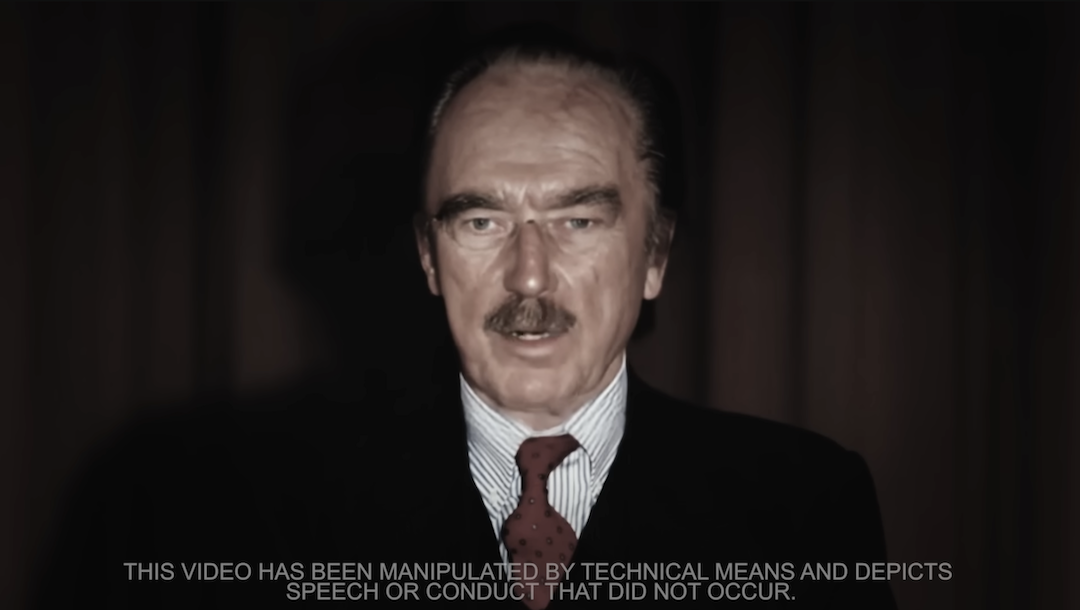Donald Trump’s Father Comes Alive Via AI To Berate His Son In Political Stunt
By Mikelle Leow, 20 Feb 2024

Video screenshot via The Lincoln Project
Trump Sr has rolled over in his grave with a bizarre campaign by The Lincoln Project, which has brought him back to the digital age using artificial intelligence to express disappointment over his son’s alleged financial and personal missteps.
The commercial, entitled Fred, puts words into the mouth of the late real estate mogul, criticizing his successor’s business deals, life choices, and even his relationship with his children. The bold move arrives on the heels of a significant financial judgment against the Trump empire in New York, to the tune of US$355 million, related to accusations of fraud and fiscal mismanagement.
The former US President has also accused the political action committee, founded by moderate Conservatives and former Republicans, of harnessing AI to sully his name, prompting the organization to react.
Here, Fred Trump is depicted lambasting his son in a robotic voice. “Donny, I always knew you’d blow it,” he is portrayed to proclaim, adding that he had “bailed [him] out so many times.”
The character continues, “The brand I built is crap because of you.”
The video includes a disclaimer stating it was “generated in whole or substantially by artificial intelligence” and includes “speech or conduct that did not occur.”
The Lincoln Project, known for its aggressive stance against Trump’s bids for presidency, has been vocal about its mission to uphold democracy by preventing his return to power. Rick Wilson, a co-founder of the Lincoln Project, emphasizes the transparency of the advertisement’s AI-assisted nature.
“AI is here to stay in campaigns, and as we often do, the Lincoln Project is going right at Donald Trump with every tool in the toolbox,” Wilson comments. “The ad is fully transparent that this voiceover is generated by AI, has clear on-screen disclaimers, and that the dialogue is our creative take on how Fred would react.”
Yet, the innovative approach raises broader questions about the role of AI in political campaigns. Critics worry that the blurring lines between real and synthetic content could challenge voters’ ability to discern truth from fabrication, and potentially undermine trust. With AI technology speeding ahead, the legal and regulatory frameworks lag behind, leaving a gray area ripe for misinformation.
[via Futurism, Euronews, Florida Politics, video and cover screenshot via The Lincoln Project]





